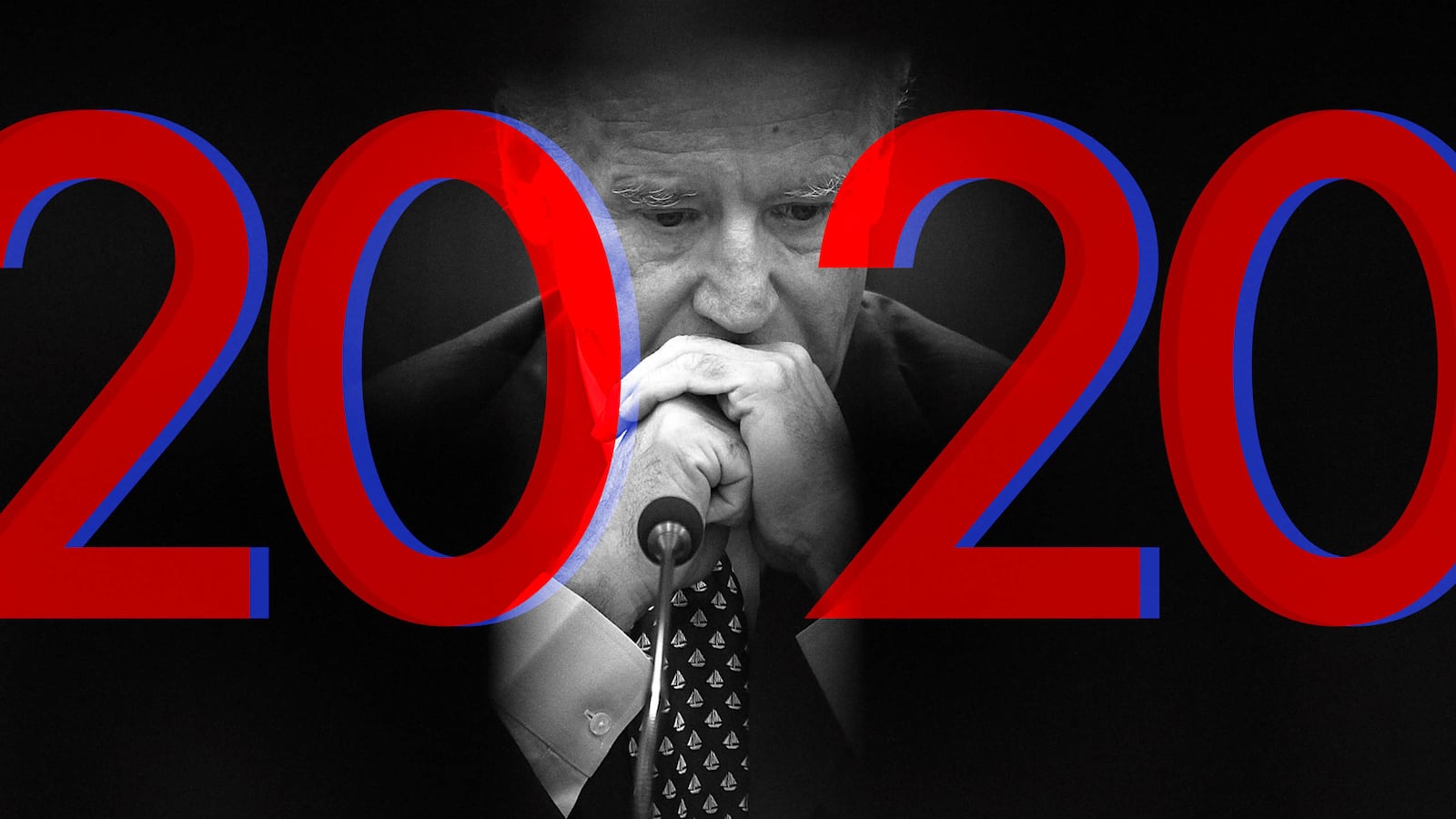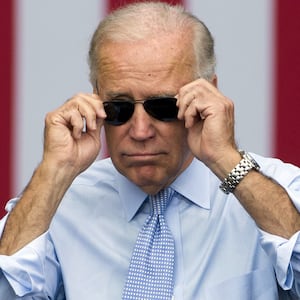As Joe Biden gears up for a third possible presidential bid, his close association with one of the Democratic Party's most revered figures could bring with it some political complications.
Barack Obama remains unquestionably beloved within the Democratic Party, with voters retaining immense personal affection for the man and idealizing his time in office. But some of the deals that Obama cut and the policies that he pursued also engendered antipathy among progressives. And no other potential Democratic presidential aspirant will have to answer for them more than Biden, who was not just his vice president but played key roles in some of the more contentious compromises Obama pursued.
Democratic officials and progressive activists say that Biden’s candidacy could spark a push-and-pull between the party’s activist base, which appreciates but does not swear allegiance to Obama, and other voters who look back nostalgically at those years. Even those who don’t see the Obama association as a negative concede that Biden’s ties to the last administration give him a political association that may seem antiquated by the standards of today’s Democratic Party.
“[I]n terms of policy, the Democratic Party has moved toward a much more progressive and populist direction than where the Obama administration and Hillary Clinton were willing to go,” Waleed Shahid, communications director for the insurgent left organization Justice Democrats told The Daily Beast. “The Democratic Party has shifted toward a left-wing, multiracial populism and Biden will be out of touch with his own party's base and the leading candidates on many key policies.”
Progressive opinions of Obama’s presidency have often included asterisks next to the larger accomplishments: a lack of true punitive measures against Wall Street despite the Dodd-Frank regulatory reform; no legal action against prior administration officials who operationalized torture overseas, expanded drone operations in foreign countries, questionable civil liberties practices and the pursuit of deficit reduction even as the country remained crippled by the recession. The last item was partially shepherded by Biden. And before he became the point person for Obama’s Iraq policy, he voted in favor of authorizing the invasion.
Bill Press, the liberal radio and television host who wrote Buyer's Remorse: How Obama Let Progressives Down told The Daily Beast in an interview that items like the Affordable Care Act remained a disappointment compared to Medicare for All. He also lamented the Obama administration’s decision to send more troops to Iraq. But while he saw these items as frustrations, he felt that they would be overshadowed ultimately by what’s happened in the Trump administration.
“I’m not sure that [Biden] gets tagged with the disappointments of the Obama administration,” Press said. “I think after four years of Donald Trump, people are not going to be looking back to the disappointments of the Obama administration.”
Biden, of course, can lay claim to some major progressive achievements from the Obama era as well, from the stimulus package, to being at the vanguard of the gay marriage push, to the Affordable Care Act, and even his failed but ambitious attempt to pass gun control measures after the shooting in Newtown, Connecticut. And Democratic operatives are quick to point out that while the Obama White House endured liberal criticism, its stock has only risen during the Trump era. Asked if there could be tension in Biden having to herald the Obama administration’s accomplishments while carving out a lane of his own, David Axelrod, former Obama senior adviser, dismissed the notion.
“I honestly don’t see that as a problem,” Axelrod told The Daily Beast. “There are fond recollections among a majority of Americans of Obama and the Obama years. The challenge is to project that forward and offer himself as a candidate of the future.”
But for the 76-year-old Biden, adopting that forward-looking vision may be tricky, and not just because of his age. He enjoys high favorability ratings at the moment due to his elder statesman status and his absence from the current political circus. In recent years, he has tailored his policy platform in notably progressive ways, endorsing the idea of free college and a $15 minimum wage—two planks that were animating factors in the past presidential primary.
But all that work could be complicated as Biden reengages politically and as primary voters are reminded of his past record, including the 1994 crime bill and the handling of the Anita Hill hearings, for which he was accused of being overly deferential to Republican senators seeking to smear Supreme Court Justice Clarence Thomas’ accuser.
A spokesperson for Biden did not want to engage in hypotheticals about an undeclared run.
Biden has also been criticized through his career as a classic backroom dealer, inclined to make painful trade offs in the name of incremental progress—a task he often was handed in the Obama years. His defenders note that he has produced results. But skeptical Democrats have been left to wonder if the former vice president is sufficiently aspirational a figure to lead the party in the current climate.
“The Obama model for how to make change, assume best intentions, just come to the table, I think that sort of model has taken a beating especially among the progressive wing,” observed a Democrat who worked on a presidential campaign in 2016, requesting to speak candidly on condition of anonymity. “Do we want someone to come in with a fundamentally different theory of change? That is ultimately what the primary is going to come to.”
To date, Biden as resisted some of the progressive movement’s most ambitious ideas. He has not advocated for Medicare for All or joined a cadre of senators backing the Green New Deal environment platform. And he raised eyebrows among progressives when he contrasted himself with Sen. Bernie Sanders (I-VT) during a speech he made in May at the Brookings Institution.
"I love Bernie, but I'm not Bernie Sanders. I don't think 500 billionaires are the reason why we're in trouble," Biden said. "I get into a lot of trouble with my party when I say that wealthy Americans are just as patriotic as poor folks."
That may not be all that problematic in a crowded Democratic primary, where voters may not back candidates along strictly ideological lines. Biden, to that end, has presented himself both as the most experienced potential candidate in the field and the most likely to beat Trump in a general election race. Party operatives say those qualities could be just as persuasive to primary voters especially as they look back for lessons from the last Democrat who won the Oval Office.
“Nobody can really afford to alienate the core parts of the Democratic base that will kind of forever have a deep connection and affection for Obama,” Jesse Lee, who previously served in the Obama White House as director of rapid response, told The Daily Beast in an interview. “How this plays out around Biden—I think Biden’s going to run his own campaign. I doubt that even he will try to portray himself as just a continuation of the Obama presidency.”







